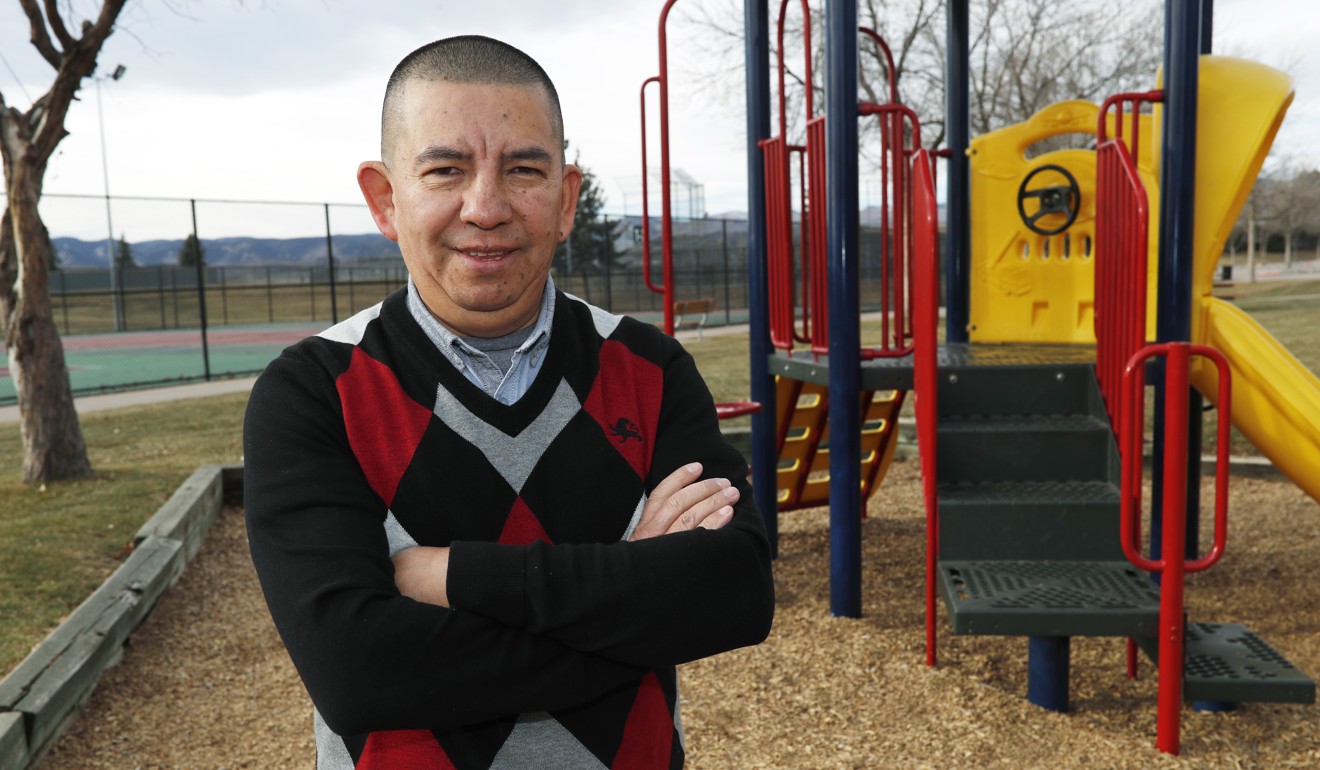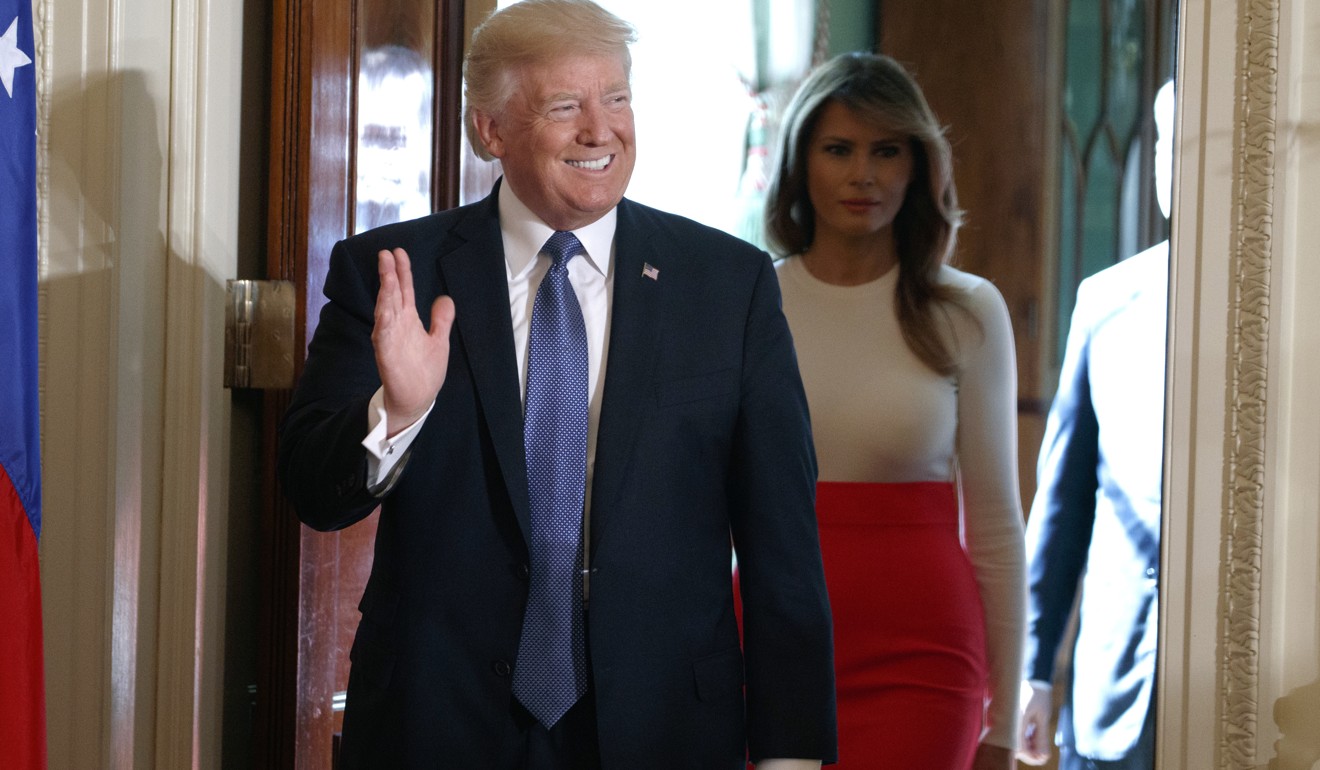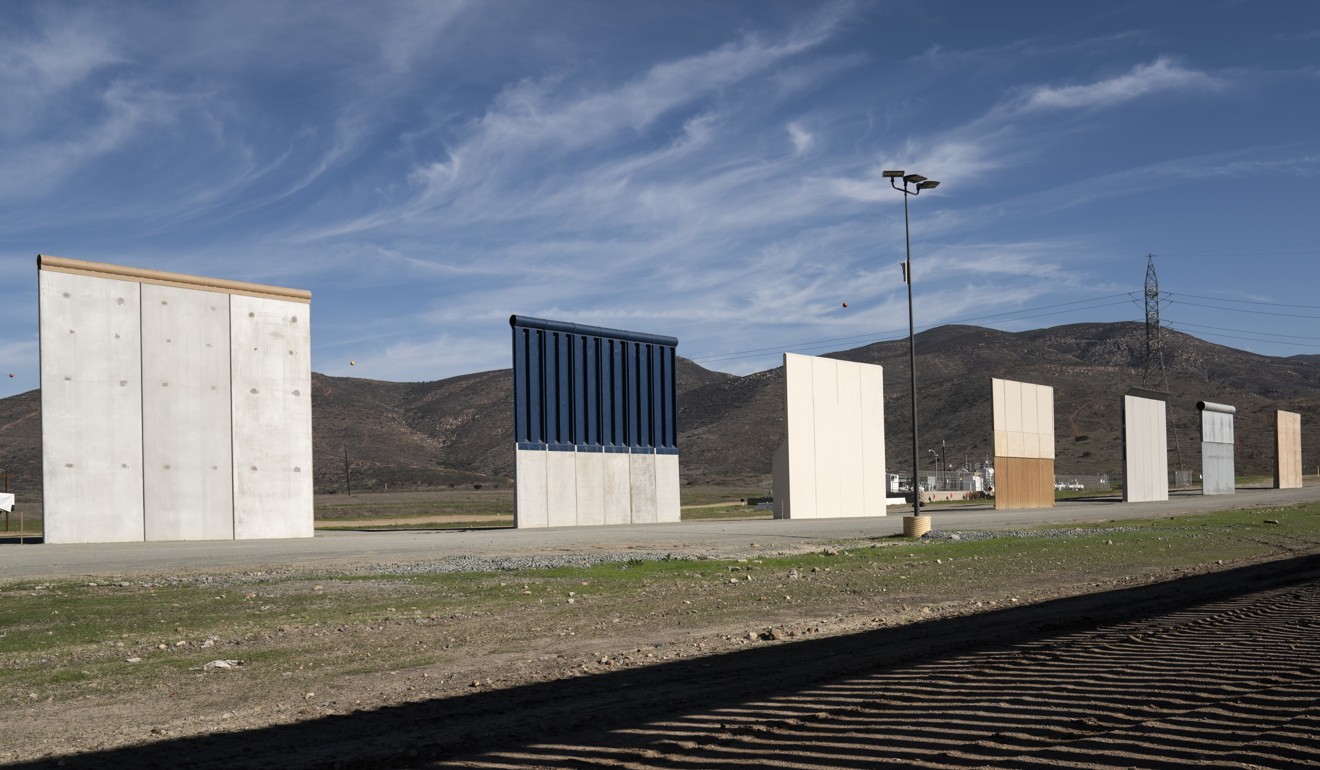
Despite Donald Trump’s tough immigration talk, Latino support for the Republican Party remains steady
- Surveys show that about one-third of Latinos support Republicans
- Democrats’ support for abortion seen as alienating evangelicals, veterans
Pedro Gonzalez has faith in Donald Trump and his party.
The 55-year-old Colombian immigrant is a pastor at an evangelical church in suburban Denver. Initially repelled by Trump in 2016, he has been heartened by the president’s steps to protect religious groups and appoint judges who oppose abortion rights. More important, Gonzalez sees Trump’s presidency as part of a divine plan.
“It doesn’t matter what I think,” Gonzalez said of the president. “He was put there.”
Though Latino voters are a key part of the Democratic coalition, there is a larger bloc of reliable Republican Latinos than many think. And the Republican Party’s position among Latinos has not weakened during the Trump administration, despite the president’s rhetoric against immigrants and the party’s shift to the right on immigration.
US will send asylum seekers back to Mexico while bids are processed
In November’s elections, 32 per cent of Latinos voted for Republicans, according to AP VoteCast data. The survey of more than 115,000 midterm voters – including 7,738 Latino voters – was conducted for The Associated Press by NORC at the University of Chicago.
Other surveys also found roughly one-third of Latinos supporting the Republican Party. Data from the Pew Research Centre and from exit polls suggests that a comparable share of about 3 in 10 Latino voters supported Trump in 2016. That tracks the share of Latinos supporting Republicans for the last decade.

The stability of Republicans’ share of the Latino vote frustrates Democrats, who say actions like Trump’s family separation policy and his demonisation of an immigrant caravan should drive Latinos out of the Republican Party.
“The question is not are Democrats winning the Hispanic vote – it’s why aren’t Democrats winning the Hispanic vote 80-20 or 90-10 the way black voters are?” said Fernand Amandi, a Miami-based Democratic pollster. He argues Democrats must invest more in winning Latino voters.
The VoteCast data shows that, like white voters, Latinos are split by gender – 61 per cent of men voted Democratic in November, while 69 per cent of women did. And while Republican-leaning Latinos can be found everywhere in the country, two groups stand out as especially likely to back the Republican Party – evangelicals and veterans.
Shutdown day 1: Trump warns it could be a ‘long stay’ amid impasse over border wall
Evangelicals comprised about one-quarter of Latino voters, and veterans were 13 per cent. Both groups were about evenly split between the two parties. Mike Madrid, a Republican strategist in California, said those groups have reliably provided the Republican Party with many Latino votes for years.
“They stick and they do not go away,” Madrid said. Much as with Trump’s own core white voters, attacks on the president and other Republicans for being anti-immigrant “just make them dig in even more”, he added.
Sacramento-based Rev. Sam Rodriguez, one of Trump’s spiritual advisers, said evangelical Latinos have a clear reason to vote Republican. “Why do 30 per cent of Latinos still support Trump? Because of the Democratic Party’s obsession with abortion,” Rodriguez said. “It’s life and religious liberty and everything else follows.”

Some conservative Latinos say their political leanings make them feel more like a minority than their ethnicity does. Irina Vilariño, 43, a Miami restaurateur and Cuban immigrant, said she had presidential bumper stickers for Senator John McCain, Mitt Romney and Trump scratched off her car. She said she never suffered from discrimination growing up in a predominantly white south Florida community, “but I remember during the McCain campaign being discriminated against because I supported him”.
Donald Trump accused of ‘temper tantrum’ after on-camera argument with Nancy Pelosi and Chuck Schumer over Mexico border wall
The 2018 election was good to Democrats, but Florida disappointed them. They could not convince enough of the state’s often right-leaning Cuban-American voters to support Senator Bill Nelson, who was ousted by the Republican Party’s Spanish-speaking Governor Rick Scott, or rally behind Democrats’ gubernatorial candidate, Tallahassee Mayor Andrew Gillum, who lost to Republican Representative Ron DeSantis.
Still, in the rest of the country, there were signs that pleased Democrats. Latinos voted at high rates in an election that saw record-setting turnout among all demographic groups. Latinos normally have among the worst midterm turnout rates, and while official data will not be available for months, a number of formerly-Republican congressional districts in California and New Mexico flipped Democratic.

That is why Republicans should not take solace from being able to consistently win about one-third of Latinos, said Madrid. They’re still losing two-thirds of an electorate that is being goaded into the voting booth by Trump.
“That is contributing to the death spiral of the Republican Party – even if it holds at 30 per cent,” Madrid said. “That’s a route to death, it’s just a slower one.”
Gonzalez, the pastor, sees the trend in Colorado. He distributed literature across Spanish-speaking congregations supporting Republican gubernatorial candidate Walker Stapleton, who was crushed by Democratic Representative Jared Polis as the Republican Party lost every race for statewide office.
Gonzalez understands the anger among some Latinos at the party and Trump for what he says is a false impression of a solely hardline immigration stance. “In the community that is not informed, that is following the rhetoric of the media, there’s a view that Donald Trump is a bad guy,” Gonzalez said. Evangelicals “understand that he’s there to defend values”.
I think the president has good, Christian principles
Gonzalez’s church is Iglesia Embajada del Reino, or Church of the Kingdom’s Embassy. On a recent Saturday night, an eight-piece band played Spanish-language Christian rock before Gonzalez walked to the podium. Wearing a blue corduroy blazer, blue shirt and grey trousers, Gonzalez, a one-time member of a Marxist group in Colombia, told his congregants that they were ambassadors of a higher power – the kingdom of God.
“It’s important that your political opinions, your social opinions,” not enter into it, Gonzalez said. “We need to represent the position of ‘The Kingdom’.”
Gonzalez did not mention Trump in his sermon, though he spoke about the Bible as a book of governance.
Afterwards, the congregation gathered for bowls of posole, a traditional Mexican soup. When politics came up, church-goers struggled to balance their enthusiasm for some of Trump’s judicial appointments with their distaste at his rhetoric and actions.
US midterms result: good for Democrats, bad for Asia, says vocal critic of Donald Trump
“I think the president has good, Christian principles,” said Jose Larios, a parks worker. “But we feel as Latinos that he doesn’t embrace our community, and our community is good and hardworking.”
Oscar Murillo, a 37-year-old horse trainer, is not a fan of Trump’s. But he tries to stay open-minded about Republicans. He voted for the party’s candidate for state attorney general, who visited the congregation before the election. “He’s in the same party as Trump, but he seems different,” Murillo said.

